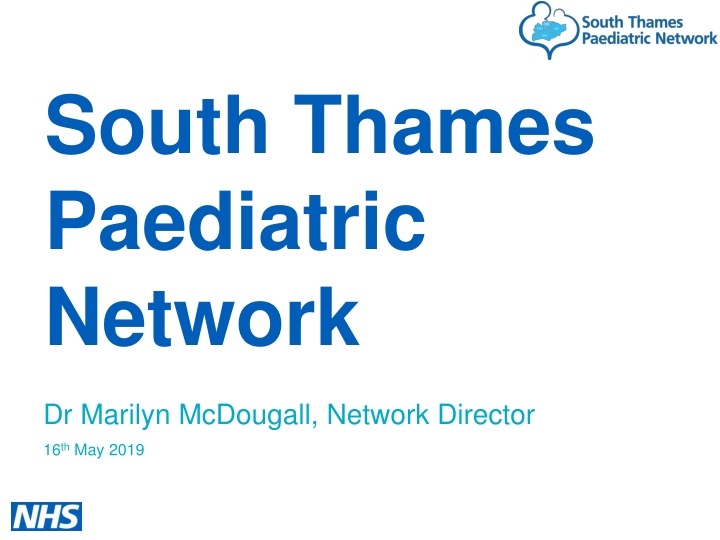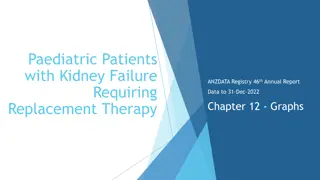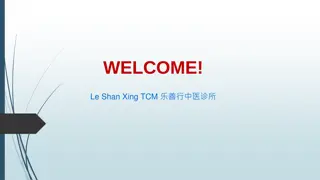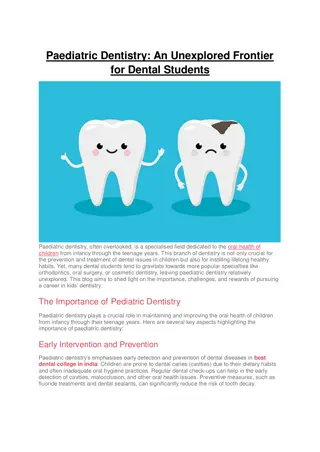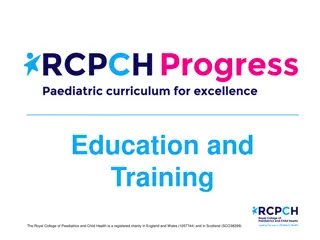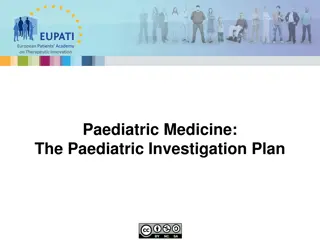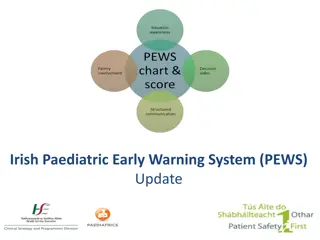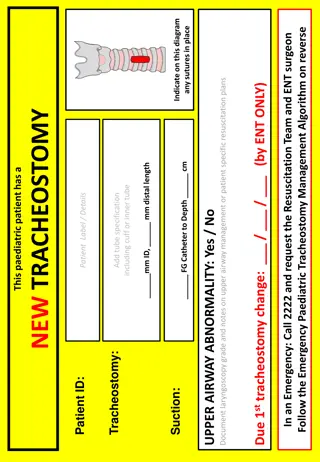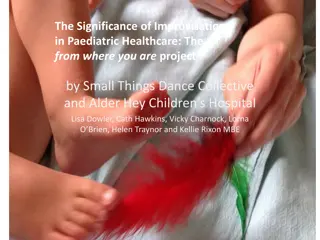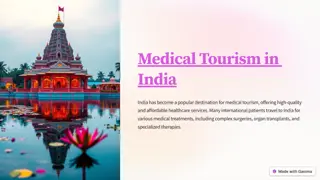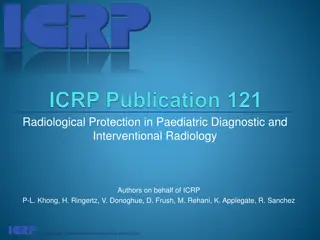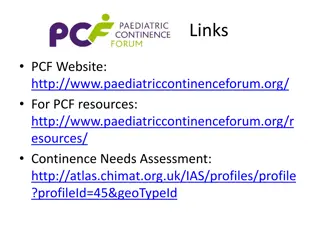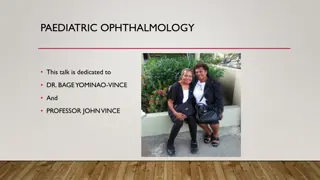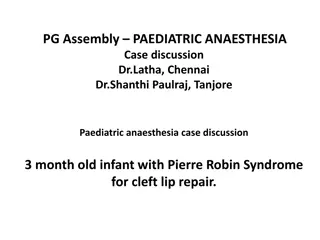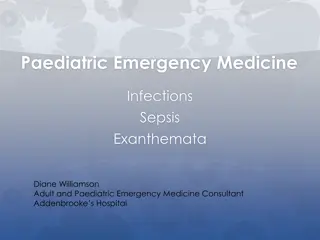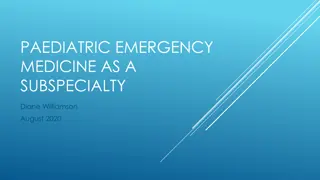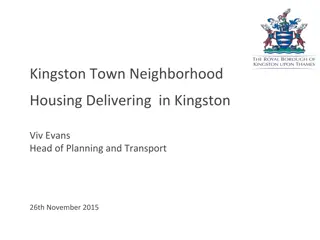South Thames Paediatric Network Overview
The South Thames Paediatric Network, led by Dr. Marilyn McDougall, aims to provide high-quality specialist pediatric care across various centers in the region. The network's vision includes improving standardization of care, sharing best practices, and achieving economic benefits through efficiency. Governed by a core team and a network board, it strives to enhance services and bring together partners for strategic clinical delivery. The network addresses challenges in critical care provision, workforce variation, practice standardization, and the rise in Long-Term Ventilation patients. Actions include reviewing commissioning, developing training plans, and promoting resource sharing among centers.
Download Presentation

Please find below an Image/Link to download the presentation.
The content on the website is provided AS IS for your information and personal use only. It may not be sold, licensed, or shared on other websites without obtaining consent from the author.If you encounter any issues during the download, it is possible that the publisher has removed the file from their server.
You are allowed to download the files provided on this website for personal or commercial use, subject to the condition that they are used lawfully. All files are the property of their respective owners.
The content on the website is provided AS IS for your information and personal use only. It may not be sold, licensed, or shared on other websites without obtaining consent from the author.
E N D
Presentation Transcript
South Thames Paediatric Network Dr Marilyn McDougall, Network Director 16thMay 2019
Network configuration Tertiary centres DGHs Lewisham and Greenwich Croydon Host: Evelina London Dartford and Gravesham Ashford and St Peter s St George s Medway Royal Surrey King s College Hospital East Kent Trust Surrey and Sussex Maidstone and Tunbridge Wells Royal Alexandra, Brighton East Sussex Trust Epsom and St Helier Kingston
Network vision Children in the network having access to high-quality specialist paediatric care in the place most suitable to their needs, at the appropriate time Improved standardisation of care across the network governed by quality standards and agreed pathways Shared learning across the partners on valuable aspects of service delivery or development from clinical best practice, service transformation, new models of care or new roles/workforce Economic benefits for both providers and commissioners achieved through improved efficiency of services , avoiding unnecessary duplication 4
Network governance The South Thames Paediatric Network is commissioned by NHS England and hosted by Evelina London The core team is: Dr Marilyn McDougall is Network Clinical Director Harriet Ward is Network Manager David Taylor is our Analyst Miriam Cabib is our Project Manager Teresa Davey is our Project Coordinator Members of the network team can be contacted by email at england.stpn@nhs.net The Network Board has been established with representation from each of our regions and tertiary centres, commissioners from both NHS England London and South, and a patient representative The STPN has a strategic function to bring together partners from across the region, as well as develop, monitor and advise on the individual clinical Operational Delivery Networks We are accountable to NHS England Specialist Commissioning 5
Critical Care ODN Four key challenges facing our region: 1. Activity and commissioning: There appears to be a lack of clarity over level 1 and 2 provision (activity, capacity and commissioning) in DGHs Workforce: There is variation in the workforce across units, both in terms of quantity and skill levels Variation in practice: There is variation in the way that patients are cared for across units Increase in Long-Term Ventilation (LTV) patients: There has been a significant growth in admissions for LTV patients 2. 3. 4. What will we do? 1. Review commissioning, funding and resourcing of level 1 and 2 critical care provision 2. Develop regional training and education plan, incorporating potential to share staff across centres 3. Explore potential for establishment of level 2 critical care hubs across the region 4. Establish regional management guidelines and referral pathways, training and study days 6
Asthma and PC & Asthma 2018 1702 STRS referral calls 1507 from ST region (88%) 868 retrievals activated : 56% respiratory, 8% asthma 7
Paediatric Surgery ODN Key challenges facing our region: 1. Feedback on the current emergency patient transfer system: Referrer: They never have beds. Then do not take any ownership in helping find beds. We don t have a designated specialist centre Tertiary centre: It takes longer than expected to transfer an emergency patient 2. Reduction in surgery delivered by general surgeons outside tertiary centres: GPS provision by DGH general surgeons: - 34% HES data What will we do? 1. More data: to test hypothesis 2. Working group: create a multi disciplinary working group with representatives from tertiary centres, from Spec Com, from DGHs, and from CCGs with both clinical staff and managers 3. Standardisation of the model of providing paediatric surgery across the network 8
Congenital Heart Disease ODN Key challenges facing our region: There has been ongoing discussion about how best to improve the quality of care delivered to CHD patients Congenital Heart Disease Standards & Specifications published in 2016, mandating networks of specialist and local providers of cardiac care Guys & St Thomas and Evelina London (GSTT-ELCH) host the CHD Network for centres across London and South East England What are we doing? Recruited to key posts (Clinical Director, Lead Nurse, Network Manager, Admin Support) Stakeholder Mapping (Database of contacts) Peer review against CHD standards 25th and 26th June Team taking part in peer reviews of other ODNs Work Plan (establishing clinical and operational priorities) Governance (creation of Network Board, organisational structure and SOPs) 9
ODN Enablers Standardisation and central procurement of equipment for example saturation monitors, ? Monitoring app Regional agreement of clinical guidelines and pathways for example, use of hiflow, acute severe asthma, sickle cell disease Network website to publicise work, share education resources , provide contact information, host clinical guidelines E-referral system: business case going through GSTT Real-time demand and capacity data capture Beautiful Information (East Kent Trust) to complete a feasibility study Network passports to enable cross-site working Establish joint working with London Neonatal ODN and South Thames Paediatric Cancer Network 10
